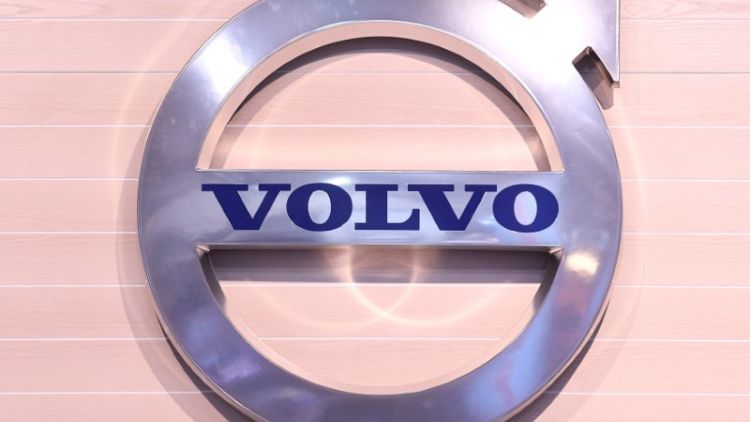By Esha Vaish
STOCKHOLM (Reuters) - Swedish truckmaker AB Volvo's attempts to cope with a weakening global market are being complicated by problems with a component that do not appear to be affecting its main rivals.
Volvo said in October some of its engines could be exceeding emission limits of toxic nitrogen oxides (NOx) because catalytic converters in its emissions after-treatment systems were wearing down more quickly than expected in certain situations.
This fuelled speculation that rivals Volkswagen and Daimler could have the same problem, after Volvo said it sourced converters from a single external supplier. Johnson Matthey, Umicore and BASF have a triopoly in that supply market.
However, representatives for Volkswagen's truck group Traton, which houses the MAN, Scania and VW brands, as well as Daimler have told Reuters their firms have not had any issues.
Traton vehicles are meeting NOx emission limits on delivery and also over time, a spokesman said, while a Daimler spokesman said "all indications are that we achieve the targeted service lives" for NOx system components in its trucks.
Volvo's problem is a distraction at a time when demand prospects look weaker in China, the world's largest commercial vehicles market; growth in Europe is slowing; and order cancellation rates in North America are rising. Over the past few years, orders have boomed as operators renewed fleets starved of investment during the global financial market crash.
"We now factor in a cyclical downturn in 2019-20, with the U.S. order bubble an added risk," Societe Generale analysts wrote on Jan. 14, downgrading Volvo to "sell" from "hold" and forecasting its adjusted operating income would fall 40 percent by 2020 versus 2018.
Volvo warned this month its operating income for the fourth quarter of 2018 would be hit by a 7 billion Swedish crowns (589 million pounds) provision to cover the cost of its emissions problems.
UBS cut its 2018 operating income forecast by 17 percent and said investors might worry "there may be more to come" as Volvo said it would continue to assess the provision size.
Volvo, which publishes 2018 results on Jan. 30, is expected to report adjusted operating profit of 40.53 billion crowns on sales of 388 billion, according to a Reuters poll of analysts. Daimler reports results on Feb. 6 and Volkswagen on March 12.
(Graphic: Sweden's Volvo forecasts contraction in Chinese and Eurpean truck markets in 2019 link: https://tmsnrt.rs/2HrSMDU).
UNANSWERED QUESTIONS
Volvo has not said how many trucks might be affected by the emissions problem, and it is unclear what fix regulators might ask for, or whether its supplier might foot some of the bill.
However, Volvo has delivered up to 1.68 million trucks that could have the selective catalytic reduction (SCR) system, as regulations have meant that SCR has been a standard on Europe trucks since 2005 and on U.S trucks since 2010.
Volvo declines to named the supplier, though a previously unreported Volvo document shows it was Johnson Matthey, the world's biggest supplier of catalytic coatings for diesel trucks. A Johnson Matthey spokeswoman declined to comment.
Johnson Matthey said in November it had been informed by two customers of failures in certain engine systems where it supplied "a particular coated substrate as a component" for emissions after-treatment systems. A previous report in March had only identified one affected customer.
Johnson Matthey, which has around 65-70 percent market share in U.S. trucks and about 60 percent in Europe trucks according to Liberum, took a charge of 50 million euros to settle a lawsuit related to the coated substrate last year.
Analysts have linked that lawsuit to truck-engines maker Cummins, which last year recalled about 500,000 trucks produced between 2010 and 2015 - also due to a catalyst degrading faster than expected. Cummins did not immediately respond to a request for comment.
A Umicore spokesman said the company had no exposure to Volvo engines, while a BASF spokeswoman said the problems Volvo was having with its emission systems were not due to any catalysts provided by her company.
Johnson Matthey's report also said it had sold the "coated substrate" in question to only two customers.
(Graphic: Volvo's truck deliveries under stricter emission regimes link: https://tmsnrt.rs/2HtMzar).
(Reporting by Esha Vaish in Stockholm; Editing by Mark Potter)



